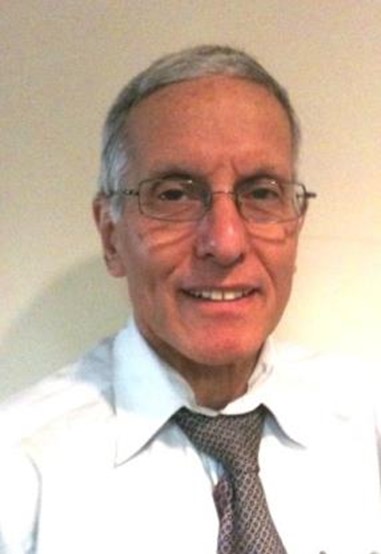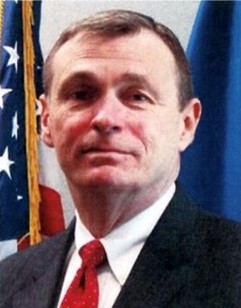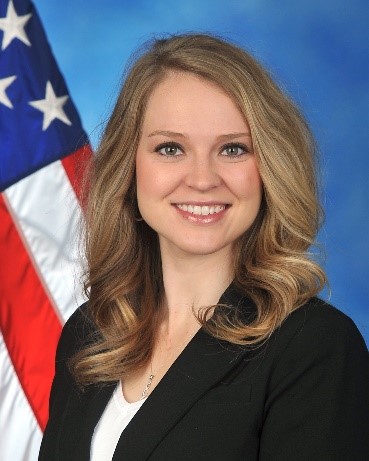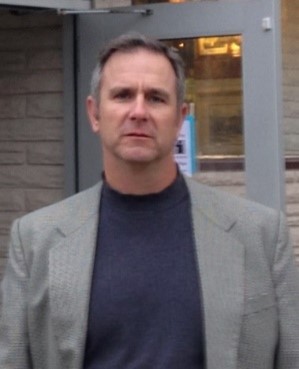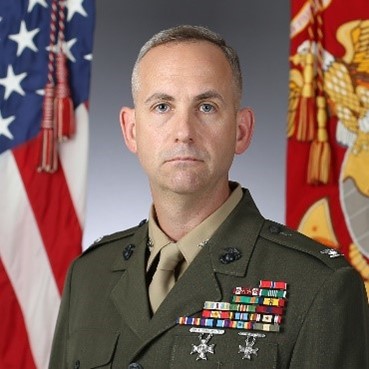Panel 7: Command Challenges and Perspectives
9 February
Today’s Combatant Commands face the difficulty of deterring two peer adversaries at the same time, who must be deterred differently, both possessing the ability to unilaterally escalate a conflict to any level of violence, in any domain, worldwide, at any time, with any instrument of national power. In response, there is broad consensus regarding the need for integration of the instruments of national power to include military, economic, informational, and diplomatic power through the use of campaigning to strengthen deterrence and enable the United States and its partners to gain advantages against the full range of competitors’ coercive actions. This panel of experts from the CCMDs will address how these challenges affect them.
Hriar Cabayan (Moderator)
Dr. Hriar “Doc” Cabayan currently holds a Visiting Scientist Position at the Lawrence Livermore Laboratory. He joined the laboratory in 1977 and worked on nuclear weapons effects, Strategic Defense Initiative-related efforts, and directed energy programs. In 1997 he joined the Joint Staff/J-39 where he managed the Strategic Multilayer Assessment (SMA) Program. In 2007, He received the Joint Meritorious Civilian Service Award from the Office of the Chairman, Joint Chiefs of Staff in 2007, and again in 2019. He returned to Lawrence Livermore Laboratory in October 2019 and retired in 2020
Dr. Cabayan received his doctorate degree from the University of Illinois in Urbana, Illinois. After graduating, he taught mathematical physics for four years at New York University’s Courent Institute of Mathematical Sciences and McGill University.
Michael A. Clark
Michael Clark, a member of the Senior Executive Service, serves as the US Cyber Command (USCYBERCOM) Director for Acquisition and Technology (J9). Mr. Clark provides leadership, advice, and technical guidance on development and integration of cyberspace capabilities as part of the Joint Cyber Warfighting Architecture Portfolio exceeding $4B. He leads technology transition efforts with strategic government and academic partners. He provides leadership to the maturity of the command’s Innovation Strategy. He is responsible for the development and execution of all USCYBERCOM acquisition system policies and procedures.
Mr. Clark retired from active duty Air Force in 2001, after 24 years of service as an Intelligence professional. He served in numerous duty positions to include tours with the RC-135, SR-71, and U2-R collection platforms; as an all-source intelligence analyst at the Intelligence Center Pacific; as Flight Commander at the 6920th Electronic Security Group, Misawa Air Base, Japan; and as the first Commander of Detachment 1, 692nd Intelligence Wing, Andersen AFB, Guam. He was the first Air Force officer assigned as a CLASSIC WIZARD Operations Officer at the Naval Computer and Telecommunications Area Master Station in the Western Pacific. His final active duty assignment was to Headquarters Air Force (HAF) where he held positions as the Intelligence Briefer to the Chief of Staff and Secretary of the Air Force, Functional Manager for Air Force Information Warfare Programs, and as HAF Integrated Joint Special Technical Operations Planner.
Mr. Clark joined Syracuse Research Corporation (SRC) in Chantilly, Virginia in 2001 as a Senior Intelligence and Information Operations Engineer, developing a Computer Network Operations (CNO) enabling-technology for the National Reconnaissance Office. Mr. Clark was the first SRC employee to be assigned as an Intergovernmental Personnel Act (IPA) detailee and lead the Executive Agency Office for Headquarters Air Force, providing oversight of two Defense Intelligence programs. In 2006, he joined the Joint Functional Component Command Network Warfare at Fort Meade, Maryland and held positions as a CNO Planner (J5), Deputy Director for Operations (J3), Director for Manpower, Personnel, and Security (J1), Deputy Director for Plans and Policy (J5), and most recently, Director for Acquisition and Technology (J9). He has been with USCYBERCOM since its inception in 2010.
Kayse Jansen
Ms. Kayse Jansen leads a team of analysts responsible for conducting adversary decision calculi in support of USSTRATCOM advocacy, risk assessments, plans, and operations. Her team also manages the J5’s Campaign of Learning, an initiative to advance the command’s thinking on deterrence-related issues. Additionally, Ms. Jansen acts as a senior technical advisor on nuclear policy and strategy issues.
Ms. Jansen entered civil service in April 2010 as a Scientist and Engineer Palace Acquire Intern in the Capability and Resource Integration Directorate, USSTRATCOM/J8. What started as a technical career in operations research, analyzing and identifying capability solutions in the space and ISR mission sets, transitioned to strategy and policy development for the nation’s nuclear enterprise. Most recently, Ms. Jansen led the adversary-specific strategy development and analysis for the President-directed Nuclear Posture Review.
Ms. Jansen holds a BA and M.A. in Mathematics. In May 2022, she obtained her M.S. in Defense and Strategic Studies from Missouri State University, where she examined How Competition Undermines Deterrence. Ms. Jansen is continuing her education in Defense and Strategic Studies towards a Doctorate degree. When not contemplating how the nation guarantees its security, Ms. Jansen enjoys spending time with her husband (a semi-truck driver) and three daughters (5, 7, 22), working on her family’s farm, and “standing in the gap” by fostering children in need.
Robert C. Jones
Robert Jones is a retired US Army Special Forces Colonel; a former Deputy District Attorney; and the senior strategist at US Special Operations Command. Currently serving within the SOCOM J5-JSOU Donovan Integration Group. Mr. Jones is responsible for leading innovative thinking on the strategic environment and how it impacts factors critical to national security, such as the evolving character of conflict, all aspects of irregular warfare, deterrence in competition, societal stability, and implications for SOF. He also serves as a Strategic Advisor to the Director of Plans, Policy and Strategy.
Mr. Jones is a featured lecturer for the JSOU Enlisted Academy, as well as the USAJFKSWCS Officer Course. He is currently promoting proactive campaigning constructs of strategic influence and irregular deterrence that are rooted in the fundamentals of insurgency and unconventional warfare and intended to inform SOF operationalization of National Strategies. His focus is the pursuit of understanding, and the provision of context.
James Krakar
Jimmy Krakar is a Principal Analyst with the TRADOC G-27 Models and Simulations Branch (M&SB) at Fort Leavenworth. Over the last six years he has participated in numerous Operational Environment analytical efforts in support of Department of Defense clients, serving as the Team leader and lead analyst for the M&SB efforts which provided on-site support to SOCCENT and CJTF-OIR. Previously he worked as a Counterinsurgency Advisor for the COMISAF Advisory Assistance Team (CAAT) in Afghanistan. He has over 25 years of active and reserve military experience in Infantry, Civil Affairs and Human Terrain operations; with deployments to Somalia, Iraq, and Afghanistan. Currently he is an Army Reservist assigned to USSOCOM J-8. Jimmy received his BS in Military History from the United States Military Academy, an MS in Intelligence from American Military University and graduated the Defense Language Institute as a basic Arabic Linguist. His most recent publication was “The Civil Engagement Spectrum: A tool for the Human Domain” published in the Sep/Oct 15 issue of Military Review.
Colonel David D .Walker
Colonel David W. Walker currently serves as Chief, Strategy & Policy Division in the Strategy, Plans, and Policy Directorate at US Central Command in Tampa, FL.
Colonel Walker’s previous assignments include: 2d Combat Engineer Battalion from 1999-2001 where he served as a Platoon Commander, Company Executive Officer and Company Commander; Marine Corps Recruit Depot San Diego from 2001-2004 where he served as a Series Commander, Battalion Operations Officer and Assistant Depot Inspector; Marine Wing Support Squadron 374 from 2005-2007 where he served as the Engineer Company Commander; Headquarters Marine Corps Office of Legislative Affairs from 2008-2011 where he served as a Congressional Fellow, Deputy Director of the Senate Liaison Office, and Legislative Liaison Officer; 4th Combat Engineer Battalion, 4th Marine Division, Marine Forces Reserve from 2011-2014 where he served as the Assistant Inspector-Instructor; Headquarters Marine Corps Safety Division from 2014-2017 where he served as the Ground Branch Head; Headquarters Marine Corps Strategic Initiatives Group from 2017-2019 where he served as a Strategic Analyst for the Commandant of the Marine Corps and as a Special Assistant to the Chief of Naval Operations in the Strategic Actions Group; and 4th Combat Engineer Battalion from 2019-2021 where he served as the Battalion Inspector Instructor.
Colonel Walker’s combat deployments include Mogadishu, Somalia for OPERATION RESTORE HOPE in 1994 providing security for the US State Department Liaison Office and in Baghdad, Iraq for OPERATION IRAQI FREEDOM in 2006 as the Assistant Team Chief for a National Police Transition Team.
Colonel Walker holds a Bachelor of Arts degree in History and English from Texas A&M University, a Master of Public Policy Administration from the University of Missouri-St. Louis, and Masters of Strategic Studies from the US Army War College and the Marine Corps War College. He is a graduate of Expeditionary Warfare School (non resident), Engineer Career Captains Course, Marine Corps Command and Staff College (non resident), Operations and Tactics Instructor Course, Red Team Members Course, the US Army War College (non resident), and the Marine Corps War College. Colonel Walker’s personal awards include the Bronze Star, Meritorious Service Medal with four gold stars, Army Commendation Medal, Navy Achievement Medal and Combat Action Ribbon with gold star.
